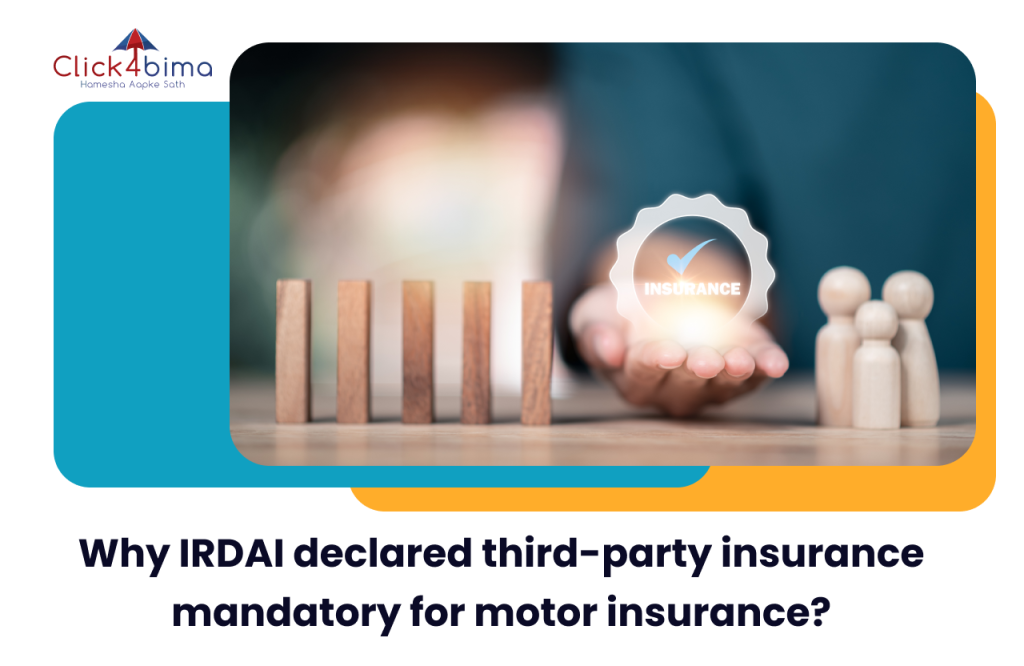The Indian government introduced several laws to effectively police the financial sector, a move designed to protect the consumer on the one hand and ensure the financial stability of the insurance market, on the other. One of the main principles, whose application has best manifested, is the mandatory third-party coverage prescribed by the Insurance Regulatory Development Authority of India (IRDAI). In this blog, we will throw light on the reasons for IRDAI’s requirement and what it means for car owners (consumers), insurance companies, and the general public.
What is third-party coverage?
Definitely, in order to explicate a matter of Exposures under which IRDAI made this decision, we should get through a definite meaning of third-party payment. A third party means coverage related to the liability suffered by insured parties for the injuries to or the goods belonging to third parties, such as, another driver, a passenger in a car, or any pedestrian, in an accident involving an insured vehicle. Third-party insurers cannot cover damage to the vehicle or any injury to the user.
The role of IRDAI
IRDAI acts as the apex regulatory authority in the insurance sector regulatory ecosystem in India, responsible for regulating insurance companies and protecting the interests of policyholders Its main objective is fairness in insurance, with consumers and drivers will be equal, the economic well-being and safety of insurance buyers products
The Rationales Behind the Mandate
Consumer Protection is one significant rationale for adopting mandatory insurance products such as third-party coverage. Motor accidents often result in significant financial loss, especially long-term when serious bodily injury occurs and/or property damage has happened. With mandatory third-party insurance, the IRDAI is ensuring that if a motorist gets into an accident, victims of the accident can have a financial pathway to recover their hardship from the accident financially. Third-party insurance aids in the progression of justice and fairness for the parties of the accident.
Financial Stability and Security are significant rationales that provide financial security and sustainability. Third-party claims can be significant and in many cases have the potential to cripple the finances of the individuals involved in the accident would they needed to pay for such claims. If there is no requirement for every vehicle owner to have insurance, they may not have the money to pay their claims when they arise, resulting in financial burdens and timely legal matters. To alleviate this potential harm for those involved in accidents, mandatory insurance helps avoid situations with no coverage by establishing a pool of insurance to pay those claims from insurance companies. This helps establish financial stability in the insurance sector.
Legal Compliance helps insurers remain compliant with the Motor Vehicle Act of 1989. The Act supported the adoption of mandatory third-party insurance for all motor vehicles. In doing so, aligning with the national legislation of compliance to ensure all vehicle owners have lawful financial responsibility when claims arise from their vehicle.
Reduction in Uninsured Vehicles helps reduce a very high percentage of vehicles operating without any form of insurance. Lasting personal financial responsibility and potential liability and risk for the operator and public can very much be on the radar of Insurance Regulatory and Development Authority of India (IRDAI). The IRDAI policy objective of Mandatory Third-Party coverage seeks to decrease the amount of uninsured vehicles on the road, which reduces additional liability that is incurred by uninsured vehicle owners, and increases consumer safety. With reduced customer risk liability Indemnity coverage policies can also improve relationships with financial or even social impact.
Promotion of Safe Driving Practices. Knowing that there are financial safeguards in place may encourage individuals to drive more responsibly. Third-party insurance does not directly prevent accidents but requires vehicle owners to be more careful, and thus, improves road safety.
Motor vehicles, by their very nature, carry the risk of causing harm to others. From both a legal and ethical standpoint, an individual who operates a vehicle should be financially responsible for any harm they may cause. Third-party insurance captures these interests by providing compensation to those harmed in vehicle-related accidents. Implications for Vehicle Owners
For car owners The new regulations bring some important changes:
• Mandatory Insurance: All vehicle owners are now required to have third-party insurance to operate their vehicles legally.
• Potential Increase in Costs: Insurance premiums may increase. Even though additional protection and legal compliance often outweigh the costs.
• Peace of mind: Vehicle owners can rest assured that they are protected against third-party payments.
Impact on Insurance Companies: This regulation provides several benefits to insurance carriers:
• More customers: Because third-party insurance is now mandatory. Insurance companies can therefore be confident that the new business will continue.
• Reduced risk of unpaid claims: As more vehicles are insured, companies can better control risk. This makes it possible to pay compensation faster.
Although the mandate aims to address key issues, but there are still some obstacles. The main concerns are accessibility and affordability. This is to ensure that every vehicle owner can obtain reasonable third-party insurance. This requires insurance companies and regulators to keep premiums manageable and ensure that policies are accessible. Another challenge is increasing awareness and ensuring compliance. This will require strong communication efforts and strict enforcement to guarantee the insurance needs of all vehicle owners.
In conclusion, IRDAI’s decision to make third-party insurance mandatory for motor vehicles is an important step in ensuring road safety. As well as providing financial assistance to those involved in accidents, IRDAI aims to protect consumers. Strengthen the commitment of the insurance industry and promote safe driving through compulsory insurance for all vehicle owners.


